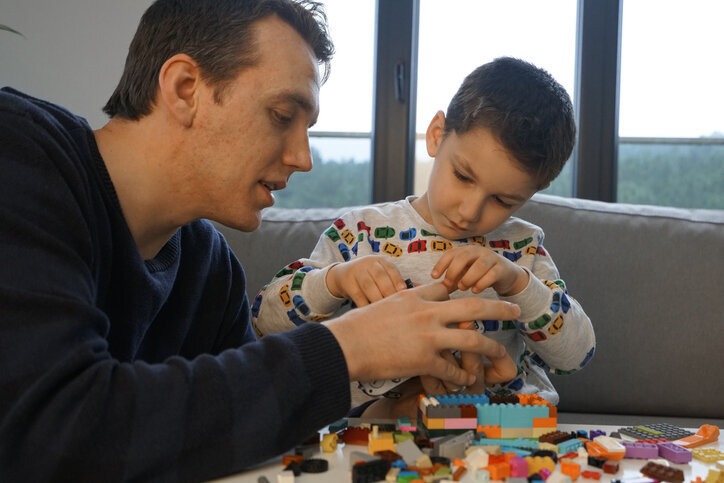A group of educators believes that schools should be “deschooled,” arguing that students are like prisoners inside schools.
Because of the quarantine, families find themselves educating their children from their homes. Many of them unknowingly are experiencing “deschooling,” the process of adapting to a less formal education where children often take control over what and how to learn.
This is not a new concept; it became popularized in the seventies when the philosopher and educator Ivan Illich published his book “Deschooling Society,” in which he describes an educational model where the child chooses what to learn while the adult guides and supports him. Illich believed that traditional education, where children must follow a unique curriculum and the same schedule, kills curiosity and creativity, not allowing for the development of soft skills.
Since then, the concept of “deschooling” has taken on different aspects of the educational world. On the one hand, some believe that it should go beyond homeschooling and translate into schools; on the other hand, critics of this stance believe that rather than helping, deschooling would affect students’ learning. But what is deschooling?
What is “deschooling?”
The organization K12 Academics describes deschooling as “the belief that schools and other learning institutions are incapable of providing the best possible education for some or most individuals.”
“It is essential to deschool students, to remove them from the negativity, the control, the prescribed, the imposed, the known and repeated, so they go on to build their educational process with the passion for learning and knowing” – Julio Rogero.
They explain that it is based on believing that people learn better independently, which is what Illich believed. Deschooling is an educational method and philosophy that promotes the freedom of children to choose what they want to learn. More specifically, it refers to the process in which the student leaves traditional education to adapt to learning at home, and the time it takes to get used to this.
“Deschooling” schools
David Lane, co-founder, and director of Ingenuity Hub, Personalized Learning Collaborative and teacher in Massachusetts, USA, wrote four articles from his experience trying to implement deschooling with his high school students. His purpose was to transform his students from passive apprentices to self-directed students in charge of their learning.
According to Lane, students in schools are like prisoners: “Learning is a process of doing what they are told—when, how, and where they are told to do it. As with former prisoners, ‘former schoolers’ discover freedom is difficult. Prisoners are denied the simple freedoms we take for granted. What to do with our free time. When to eat. When to sleep or exercise.”
He argues that the world is continually changing, and young people are not being prepared in the best way, as they do not learn to confront challenges because they only wait for someone to tell them what to do. Lane explains that what he did was not to eradicate the students from school; instead, he gave them an hour of the day to learn freely. Some of his students quickly understood the concept, but the teacher focused on those who apparently “did nothing” because of not knowing how to manage their free time and invest it in something that they wanted to learn.
“The traditional school focuses too much on exams, the academic success of the students, the curriculum, and other factors that end up producing exhausted teachers and students who do not enjoy or potentialize their learning.” – Julio Rogero.
The professor elaborates by explaining that in a traditional model, the students often pretend to pay attention, and they learn nothing, or very little because they do not know how to manage their time. However, they are expected to be paying attention always. According to Lane, many times, what the students need is to change that mindset that “doing nothing” cannot be productive. For example, students often take a break because they are blocked and need to clear their minds to see their projects with a fresh viewpoint.
David Lane is not the only one who thinks that way. Julio Rogero, a Spanish teacher and active member of the Open School collective, belonging to the Pedagogical Renewal Movements, agrees with the idea of deschooling schools. According to Rogero, it is necessary to take out anything that does not promote the integral development of the student, and that prevents the educator from teaming up with them in their educational process. For the teacher, the traditional school focuses too much on exams, the academic success of the students, the curriculum, and other factors that end up producing exhausted teachers and students who do not enjoy nor potentialize their learning.
Rogero emphasizes the need to modify spaces and have less unflexible schedules to appreciate that learning is full-time; there must be more flexible content, which includes different disciplines and focuses more on relationships, to make a more human education.
“It is essential to deschool the students, to remove them from the negativity, the control, the prescribed, the imposed, the known and repeated, so they go on to build their educational processes in the passion for learning and knowing, in openness to others and life, to the unknown and the unforeseen, to the unpublished relationships, to error, and discovery,” Rogero says.
Teachers and families: key elements for deschooling
Moreover, it is not only students who have to deschool, but also the teachers. According to this philosophy, the professors should let go of the purely academic vision and opt for one that focuses on the assessment of the student.
Also, families are an essential part of this deschooling process because of many focus on the same thing as the educational institutions, i.e., academic performance. According to Rogero, society also needs to accept that the school must change because “the model of the school that we have loses value and is more in crisis. It is necessary to change it in depth. We are increasingly frustrated by partial reforms, patches, and pacts to keep the school as it is.”
The case against deschooling and unschooling
Unlike David Lane or Julio Rogero, other educators and experts think the process of unschooling poses a danger. Such is the case of Natalie Wexler, who argues that the instructed learning works better than learning by discovery, especially when the student does not know the subject or knows very little. Besides, Wexler points out that children are incapable of wanting to learn something that they do not know, so they should be introduced to these things.
One of the topics that worry detractors of this philosophy is the development of necessary skills such as reading and mathematics. Wexler mentions a documentary called “Unschooled,” where three young Americans are removed from school and begin to learn independently. The vision of the directors, Rachel Beth Anderson and Timothy Grucza makes it clear at the end of the documentary that the three students achieved their goals. Two of the participants of this experiment managed to obtain internships in their areas of interest, while the third improved his reading skills. Still, the documentary shows that while some skills improved, other essential ones, such as mathematics, did not report good results.
According to Wexler, this is the greatest danger of letting students take care of their education, that they do not develop their full potential, not only in one area but in all. K12 Academy also mentioned several points against “deschooling,” such as not providing the necessary information that students need in their adult lives. They also suggest that letting children take care of their education can deprive them of learning essential things because of their lack of interest in these areas, coinciding with Wexler’s argument. Also, the critics of the deschooling philosophy point out that there are cases where the families are not prepared to provide an environment that promotes the development of their children’s skills or motivates them to be curious and learn new things.
Another issue that ‘deschooled students’ may face is related to accreditation, especially if they want to enter a university or obtain a job because they lack traditional diplomas or degrees that certify their knowledge. Finally, critics of this philosophy point out that in many cases, children who follow this method do not perform as much schoolwork because they are not obliged to do it. They argue that they may suffer in the future by not being able to adapt to the work environment or to follow the rules and guidelines of an authority figure.
What is your opinion? Is it better to have a student-centered education that empowers them to decide which areas of interest they want to concentrate on or a more structured modality that continuously guides them to develop their potential?
This article from Observatory of the Institute for the Future of Education may be shared under the terms of the license CC BY-NC-SA 4.0 
)
)


)